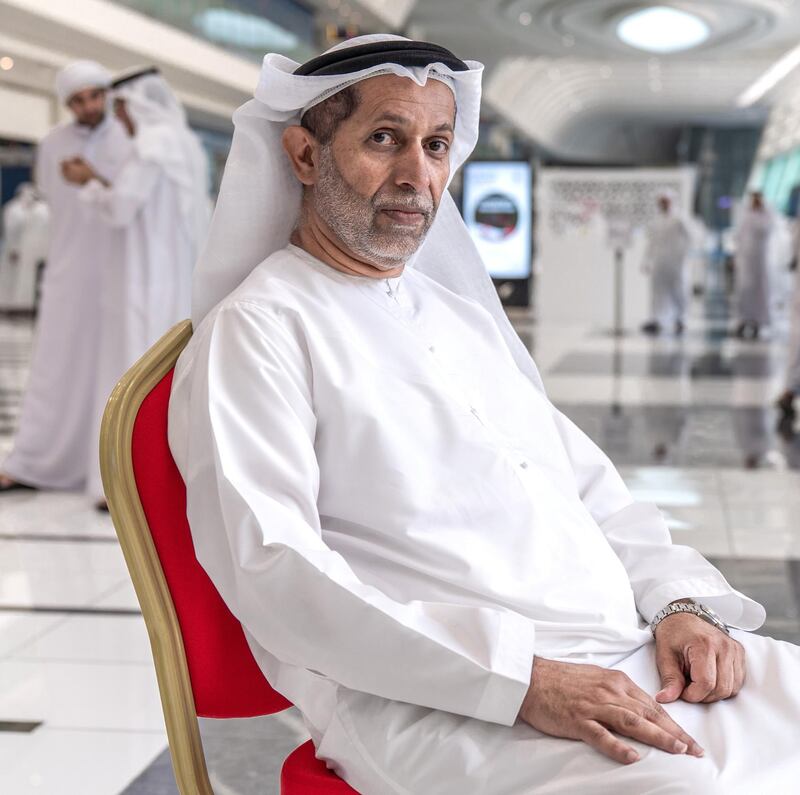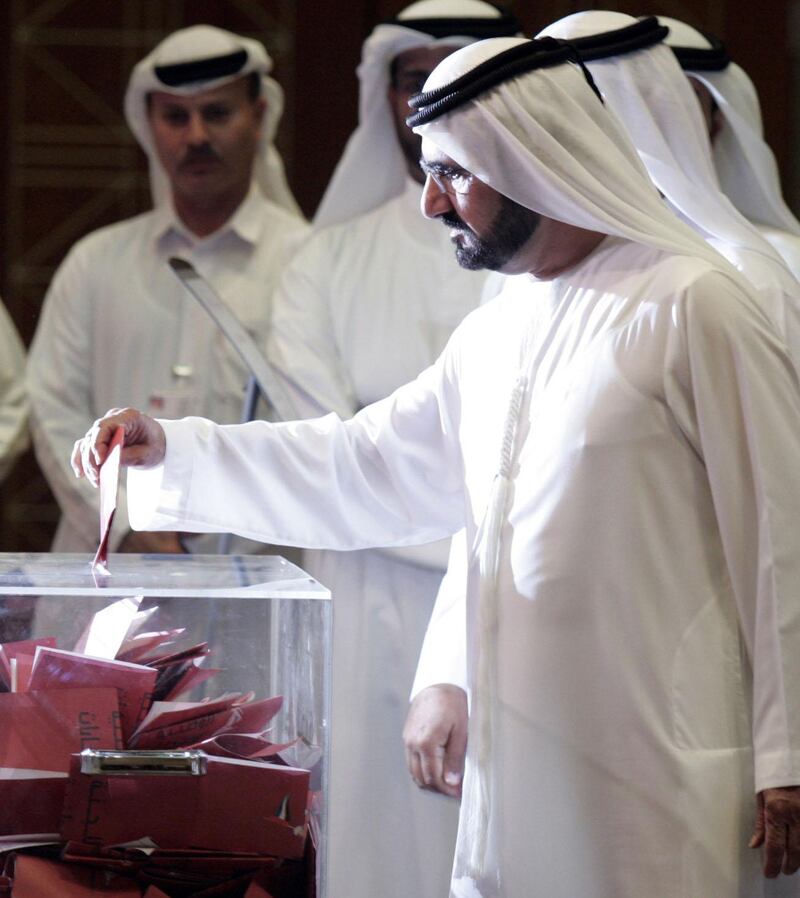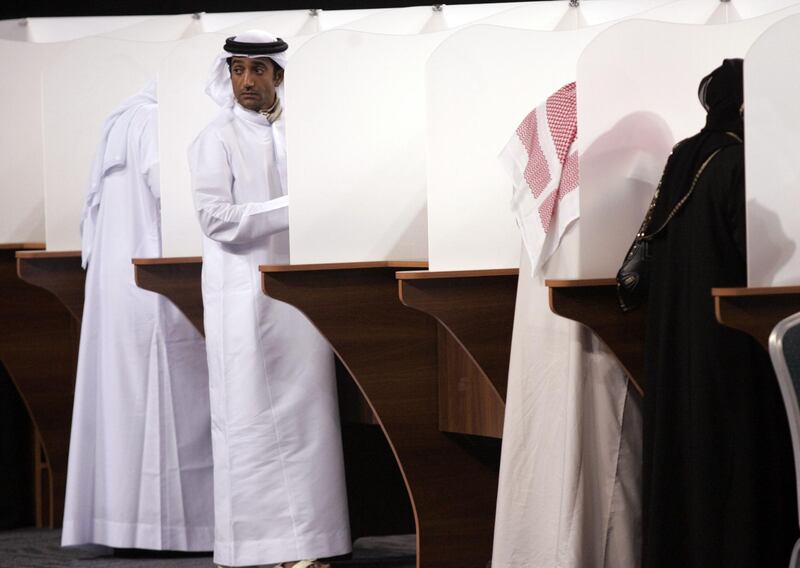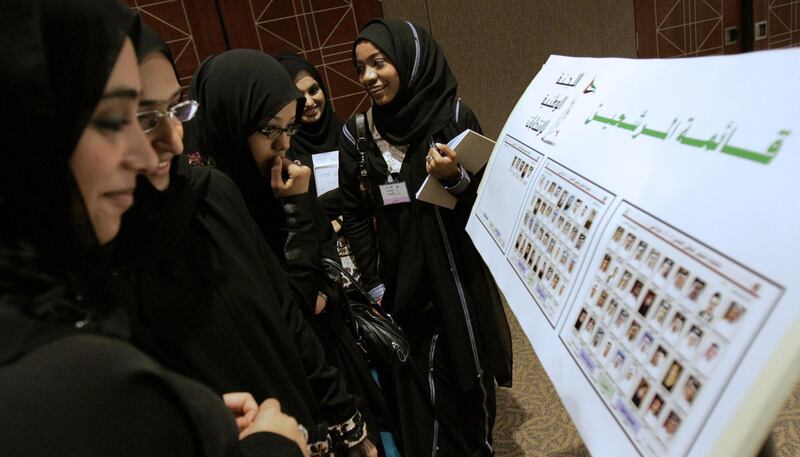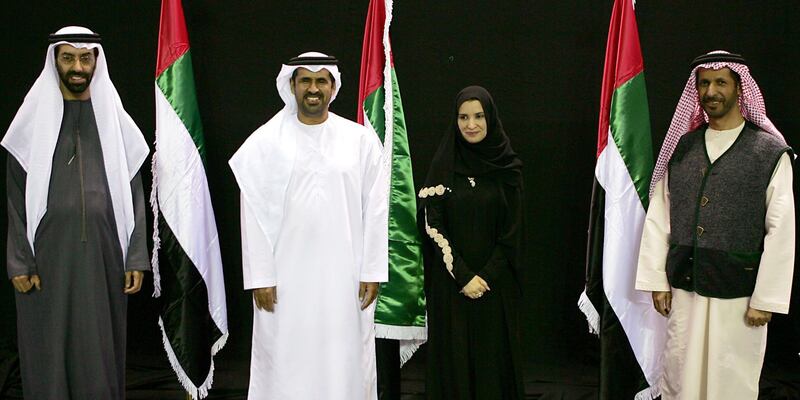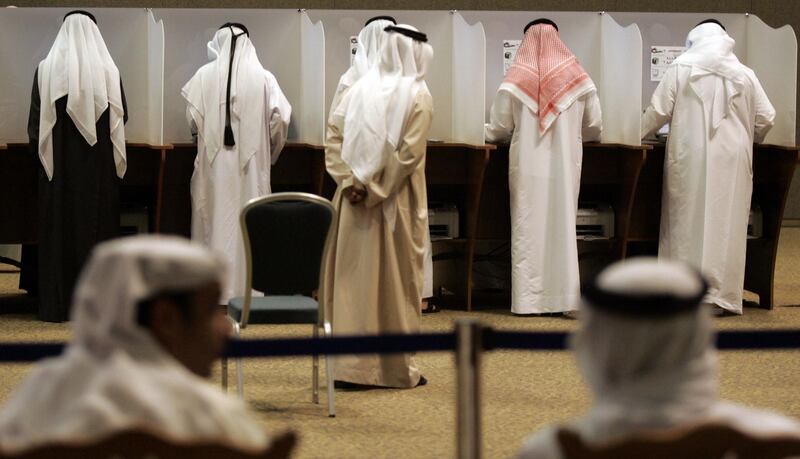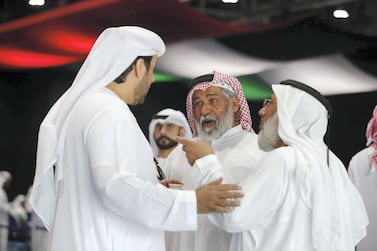It was a year that heralded a new era for political participation in the UAE.
Until that moment, all 40 members of the FNC were appointed by the Rulers.
But the President, Sheikh Khalifa, declared that half of the FNC would be elected in 2006. Now Emiratis would run for office and vote.
As Emiratis go to the polls in this year's election, The National spoke to some of those who ran successful campaigns back in 2006.
Former diplomat Rashid Al Murrar, 53, was one. Mr Al Murrar won by about 400 votes and recalls a very different time.
“There was no social media so we advertised through newspapers and the radio,” said Mr Al Murrar.
“You did not need that many votes to win at the time but I do think that the members were a lot more qualified.
“Many times we have seen members who are not qualified and unaware of the responsibilities of the council,” he said.
Mr Al Murrar said one of the biggest misconceptions about the FNC was that it was simply a forum to air grievances. “Many of the campaigns that you see today of FNC members promising to fight for Emiratisation or increased pensions and so on, are empty promises.
“The bulk of your duties - about 90 per cent - are legislative. Our responsibility at the council is not to start lecturing or preaching about the demands of the people, that is not the priority.”
Since those early days, major efforts have been made to improve the infrastructure to enable people to vote. “I could not get anyone to vote for me from the western region,” said Mr Al Murrar. “It was too far away for them to come to them but today there are polling stations everywhere.”
He also suggested giving Emiratis two votes so they could cast one each for a man and woman.
That year also saw the first woman to be elected at the council, Dr Amal Al Qubaisi.
For the first time, eight women were appointed and one was elected.
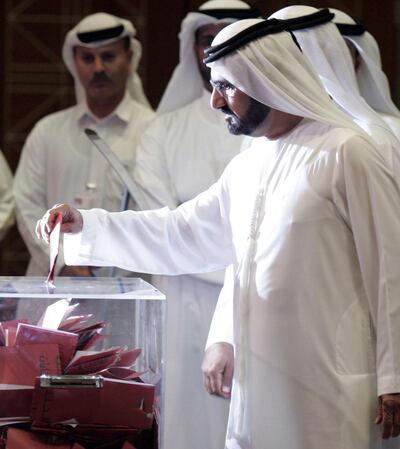
In 2006, Maysa Ghadeer was the first female candidate to be appointed by the government of Dubai.
“The immense pride I felt that while I didn’t get the necessary votes, I had won the trust of my government is indescribable," said Ms Ghadeer.
She also reflected on the changing ways of campaigning, with social media now all powerful.
“There was no WhatsApp or social media in our time,” she said. However, Ms Ghadeer said that social media could work against the candidates.
“It has become bothersome to many voters who are bombarded with repeated campaign messages. Also some of the most qualified and experienced candidates may not be tech-savvy.”
The cost of running is also an issue. She was supported by businessmen and private companies who invested Dh40,000 in the campaign. Ms Ghadeer also cautioned that it was important elected members remembered why they were elected and communicate with citizens afterwards. She urged for more awareness campaigns to be run about what the council was doing.
“Some neglected [to follow up with voters after], while the main reason was the lack of special offices for members and councils in various emirates to communicate with citizens.”
Ms Ghadeer did not run again saying she wanted to give the opportunity to others. This year half of the 40 council members must be women.
Hamed Al Midafa, 58, meanwhile said there was a consensus across the board that the 2006 council was a stronger and more involved body.
“My campaign was minimal. I didn’t put up a single poster and had reached out to a few friends and members of the community,” he said.
During his term, he started the initiative where ministers would be summoned by the parliament and questioned by members. He won by a little over a 100 votes.
“It was a new era,” he said, of the 2006 campaign. “There was intense participation and enthusiasm from every member.”
